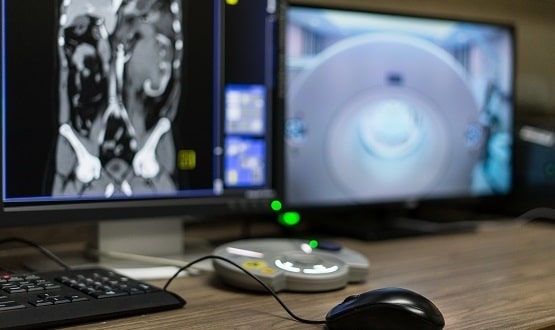Rhino Health joins consortium to reduce carbon footprint of CT scans
- 15 December 2023

Rhino Health has joined forces with more than 20 international institutions to help advance a disruptive solution that will reduce the environmental footprint of computerised tomography (CT) imaging.
The leader in federated computing will be participating in the NetZeroAICT consortium, along with institutions around the world including the University of Oxford. The NetZeroAICT project is co-funded by Horizon Europe and UK Research Innovation (UKRI).
It aims to develop AI-powered CT digital contrast technology, which will reduce the environmental impact of CT imaging by minimising contrast media and single-use consumables. With the development of an AI solution it hopes to revolutionise the radiology service pathway.
Every year over 300 million CT scans are performed globally. The average carbon footprint of each is 9kg per scan, due to single-use consumables such as the needle, dressings, packaging, and the additional energy consumption.
Additionally, around 60% of CT scans require the use of iodinated RCM – an injection which is not absorbed by the body, but rather excreted with urine. This forms a major pharmaceutical waste released into sewage water, that affects downstream environmental biodiversity.
Professor Regent Lee, surgeon scientist entrepreneur at University of Oxford, and the scientific coordinator of the project, said: “The combined NetZeroAICT Consortium expertise will enable us to develop and deploy trustworthy ‘green’ AI software as medical device with the ultimate goal to reduce the environmental footprint from CT imaging.
“European patients will have access to safer, faster, equitable and sustainable healthcare delivery while the healthcare systems strengthen their alignment with the European Green Deal. This is a new era of translational research. In addition to improving patients’ health, our aspiration is to improve planetary health for future generations.”
The NetZeroAICT will work on the development of a robust CT image repository, which will be extensively curated and accurately classified, making it research-ready, searchable and accessible. The repository will contain data from more than 10 hospital groups from countries around the world – including England.
Rhino Health’s role within the project will be to help train the AI model. It will provide its federated computing platform along with its team’s expertise in edge computing, federated learning and AI.
The platform will deliver unique capabilities that will allow the consortium to maintain ‘net negative computing’ by orchestrating workflows across both a large public cloud as well as a ‘green cloud’ to reduce the carbon footprint of the entire project.
Rhino Health co-founder and CEO, Ittai Dayan, MD, said: “Our platform enables collaborative healthcare research while complying with data privacy regulations.
“We intend to not only reduce the environmental impact of medical imaging, but also develop this ‘digital contrast’ in an environmentally friendly way and do that while powering innovation by combining numerous academic researchers from around the world.”
The consortium is coordinated by Collective Minds Radiology and scientifically led by the University of Oxford.
The NHS has also been encouraging its staff to reduce their carbon footprints. Earlier this year Jump won a £690,000 NHS contract to develop a healthcare-specific carbon engagement tool.



